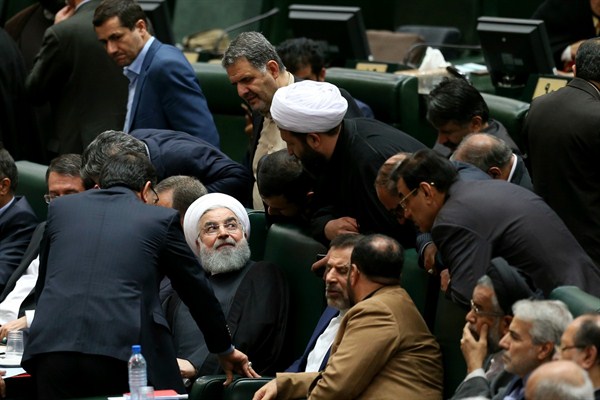The Trump administration is set to reimpose economic sanctions on Iran next week that target its oil sector, after having reimposed sanctions on other sectors of the Iranian economy in August. But they will target Iran only indirectly. Many of those sanctions will be aimed at firms and financial institutions in Europe, Japan, Turkey and other allied countries, as well as China, India and elsewhere. Unlike the United Nations sanctions that helped bring Iran to the negotiating table and led to the international agreement to halt Iran’s nuclear weapons program, the new U.S. sanctions will be unilateral, extraterritorial—often called “secondary”—and staunchly opposed by the rest of the world. Based on empirical analysis of economic sanctions in the 20th century, that means they are highly unlikely to achieve President Donald Trump’s purported goals.
This is, in part, because Trump’s negotiating style is particularly ill-suited to a case like Iran that involves a target nation’s national security, as well as its national pride. The extensive research that I conducted with colleagues at the Peterson Institute for International Economics shows that sanctions take time to work, and governments need to have patience—not something for which Trump is known. Our analysis also shows that economic sanctions are most likely to be effective in achieving foreign policy objectives when those goals are modest and when the targeted countries are democratic rather than authoritarian, and allies rather than enemies. While there is no magic threshold beyond which sanctions will succeed, the evidence shows that the economic costs imposed by sanctions have to be aligned with the ambitiousness of one’s objectives.
In the initial years after World War II, when the United States was dominant economically and politically, it was powerful enough to use sanctions unilaterally and frequently achieve its goals. In the late 1940s, for example, the United States threatened to withhold Marshall Plan aid if the Netherlands did not negotiate a peaceful resolution of independence demands in Indonesia. But with economic recovery in Europe and Japan, American power declined relative to the rest of the world. As markets later globalized, multilateral cooperation became more essential for American sanctions to have a chance of making a sufficient economic impact, especially if the target country was relatively large or wealthy.

